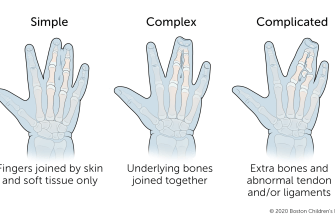Extreme fatigue, also known as chronic tiredness, excessive exhaustion, constant weariness, or severe sleepiness, can be a debilitating condition that affects many individuals. It can have a significant impact on daily life, making even simple tasks feel overwhelming and exhausting. Understanding the causes of extreme fatigue and learning how to alleviate it is crucial for improving overall well-being and quality of life.
What Causes Extreme Fatigue?
There are several potential causes of extreme fatigue, and it is often a combination of factors that contribute to this condition. Some common causes include:
- 1. Lack of sleep: Insufficient or poor-quality sleep can lead to chronic tiredness and excessive exhaustion. It is essential to prioritize sleep and establish healthy sleep habits.
- 2. Medical conditions: Certain medical conditions, such as anemia, thyroid disorders, chronic fatigue syndrome, fibromyalgia, and sleep disorders like sleep apnea, can cause extreme fatigue. Consulting with a healthcare professional is crucial for proper diagnosis and treatment.
- 3. Mental health issues: Conditions like depression, anxiety, and stress can contribute to constant weariness and severe sleepiness. Addressing these underlying mental health concerns is essential for managing fatigue.
- 4. Poor nutrition: A diet lacking in essential nutrients can leave the body feeling depleted and fatigued. Ensuring a balanced diet with adequate vitamins, minerals, and hydration is vital for energy levels.
- 5. Sedentary lifestyle: Lack of physical activity can lead to muscle weakness and decreased stamina, resulting in excessive exhaustion. Regular exercise can help improve energy levels and overall well-being.
Alleviating Extreme Fatigue
While extreme fatigue can be challenging to overcome, there are several strategies that can help alleviate its symptoms and improve energy levels. Here are some effective approaches:
1. Prioritize Sleep
Getting enough quality sleep is crucial for combating fatigue. Establish a consistent sleep schedule, create a relaxing bedtime routine, and ensure a comfortable sleep environment. Avoid electronic devices and stimulating activities before bed to promote better sleep.
2. Seek Medical Evaluation
If chronic tiredness persists despite lifestyle changes, it is essential to consult with a healthcare professional. They can evaluate potential underlying medical conditions and provide appropriate treatment options.
3. Manage Stress and Mental Health
Stress, anxiety, and depression can significantly impact energy levels. Engage in stress-reducing activities such as meditation, deep breathing exercises, or engaging in hobbies. Seeking therapy or counseling can also be beneficial in managing mental health concerns.
4. Adopt a Balanced Diet
Eating a nutritious and well-balanced diet is essential for combating fatigue. Include a variety of fruits, vegetables, whole grains, lean proteins, and healthy fats in your meals. Stay hydrated by drinking an adequate amount of water throughout the day.
5. Incorporate Regular Exercise
Engaging in regular physical activity can boost energy levels and reduce fatigue. Aim for at least 150 minutes of moderate-intensity exercise per week, such as brisk walking, cycling, or swimming. Start slowly and gradually increase the intensity and duration of your workouts.
6. Practice Stress-Relief Techniques
Stress can contribute to extreme fatigue, so it is crucial to incorporate stress-relief techniques into your daily routine. This can include activities such as yoga, meditation, deep breathing exercises, or engaging in hobbies that bring joy and relaxation.
7. Take Breaks and Rest
Allowing yourself regular breaks throughout the day and prioritizing rest is essential for managing fatigue. Listen to your body’s signals and take short breaks when needed. Avoid overexertion and learn to delegate tasks when possible.
8. Avoid Stimulants
While it may be tempting to rely on caffeine or energy drinks to combat fatigue, these can provide only temporary relief and may disrupt sleep patterns. Instead, focus on natural energy-boosting strategies like staying hydrated, eating nutritious meals, and getting regular exercise.
9. Create a Relaxing Environment
Designate a calm and peaceful space in your home where you can unwind and relax. This can help reduce stress and promote better sleep, ultimately alleviating extreme fatigue.
10. Practice Good Sleep Hygiene
Establishing healthy sleep habits is crucial for combating fatigue. Avoid stimulating activities before bed, keep your bedroom cool and dark, and limit exposure to electronic devices. Create a soothing bedtime routine to signal to your body that it is time to sleep.
By implementing these strategies and making lifestyle changes, it is possible to alleviate extreme fatigue and improve overall well-being. However, it is important to remember that everyone’s experience with fatigue is unique, and what works for one person may not work for another. If fatigue persists or worsens, it is always advisable to seek professional medical advice for a comprehensive evaluation and personalized treatment plan.








